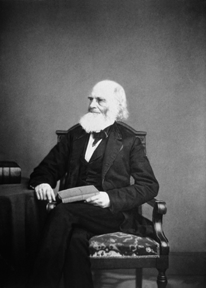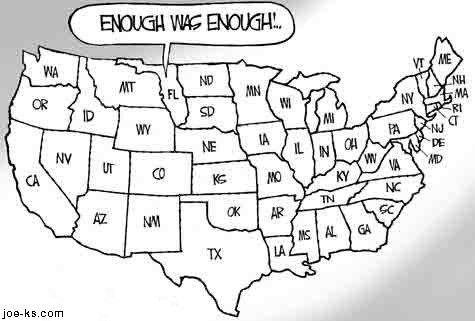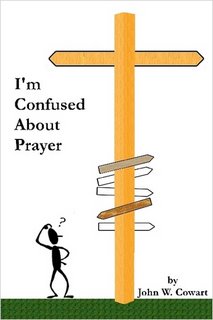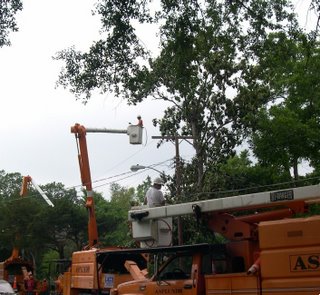My e-friend Jellyhead (http://jellyheadrambles.blogspot.com/ ) is a physician in Australia. She and her husband have two children. He enjoys birdwatching and captures beautiful photographs; she studies karate and recently earned her blackbelt.
I wish she’d been walking beside me one morning about two years ago; as I strolled home through a nice residential area on a beautiful Spring day about 10 a.m., a man darted out of no where, knocked me down, beat me up, and stole my billfold. I never even saw him till he’d already hit me and knocked me to the sidewalk.
A karate champion would have been a great companion that morning.
Thursday Jellyhead asked me the following question:
Do you really believe in an interventionalist God, John?
Because to me, the idea that God can help us if we only pray to him, or have faith in him, flies in the face of all those children who die from leukemia, or young people who have tragic accidents, or even older people who die awful lingering deaths. Surely if God could change these things, he would. Hence the concept of a loving God who can watch over us, but cannot save us from tragedy. What do you think?
(I understand if you don't want to answer - this is after all a very public forum)
When I read her question the first thing I thought of was two dogs.
About 15 years ago my car broke down and I had to walk to work through a very rough slum section of town. A block ahead of me I saw a six or eight tough really mean-looking guys standing in the street. They eyed me coming and spread out blocking the walkway. Really scary. One of them hefted a bat or pool cue.
I could either turn around and run or keep going because this was the only way I could get to work.
I may have said "O damn!" or said a prayer but I really didn’t know what to do.
Suddenly, out a narrow space between the brick walls of a laundry and a bar, two enormous dogs appeared. One black and one white. These two dogs came out like fighter jets in formation and took up station, one on either side of me.
These dogs, each the size of a desk, biggest dogs I’ve ever seen, looked to neither the left or right but pressed in against my legs and matched me step for step as I walked straight ahead.
The gang of tough guys separated.
These dogs and I walked straight through the two columns of them.
The dogs walked like that with me for another block till we came to Springfield Park where both dogs peeled off and ran, disappearing into the distance.
They had never sniffed me or even glanced at me.
Do you really believe in an interventionalist God, John?
I have to answer: Sometimes.
But I’ll have to qualify that by saying that the Lord intervenes in human affairs at His pleasure, not mine.
He is, after all, sovereign.
So, I wonder why, or even if, God protected me by sending those big dogs that one time, but let me get my ass kicked that other time?
I mean in the light of the bad things that happen every day, how can we believe in a loving, all powerful God who lets, or causes, terrible things to happen to His children?
If God loves us, then why does He allow terrible things to befall us?
If God is all powerful, then why doesn’t He stop bad things?
Is it a case of either God does not care about us --or, if He does, then is He too weak or too far removed to do anything about it?
I do not have an answer.
What I do have is a couple of thoughts that help me believe in Christ and trust Him even though I do not have a definitive answer.
Yes, children do die from leukemia, young people do have tragic accidents, older people do die awful lingering deaths. There are deformed babies, wars, cruelty, cheating, bullying, debt, abuse, liars, adulterers, frustration – Suffering in varying degrees touches every person’s life.
And if we don’t die first, we face Alzheimer’s.
It’s not a pretty picture.
Why doesn’t God intervene?
How exactly would I want Him to do that?
Well, first of all I’d like to live in a garden. A beautiful place with flowing springs, singing birds, peaceful animals, fruitful trees, blooming flowers - no thorns. A place where my beautiful wife and I could romp naked in the forest and roll happy in the grass. No thorns, no sickness. No troubles. A place where in the cool of the day God would come and walk with me and talk with me and listen to me and …
Oh. Oh. Oh. — He’s already done that.
That’s the life He had in mind for us from the word go.
But we chose otherwise.
Our president decided he had a better idea; he decided that humanity could actually be like little gods. Instead of worshiping and obeying and enjoying the Creator, our first leader rebelled and changed the truth of God into a lie, and worshiped and served the creature more than the Creator.
St. Paul said, “Even as they did not like to retain God in their knowledge, God gave them over to a reprobate mind, to do those things which are not convenient”.
In other words, God let us do the things we chose to do.
And He let us deal with the consequences.
When Ginny and I were talking about such stuff yesterday, she asked if Jellyhead is a mother. “Then,” Ginny said, “ She’ll understand about teaching them to walk. Sometimes, you have to let them fall so they can learn to stand”.
She also compared God’s treatment of us with a father who teaches his 16-year-old daughter to drive a car. He explains the rules of the road, the traffic laws, the safety tips – everything he can to protect her and keep her safe and help her get where she wants to go …
But there comes a day when she turns the key and starts down the road alone.
The Father’s heart is in his throat. He cringes when she shifts gears. He stays awake all night till she’s safely home… But he lets her drive.
He lets her be responsible.
He lets her chose the road she drives on and the speed she goes.
He wants her to be free.
To cruise.
To get where she wants to go.
To come home safe.
But at that point he does not intervene.
How would she feel if he did?
And when she get a speeding ticket, does Dad intervene?
Sometimes.
Is he able to help? Of course. Hey, Dad can drive a stick-shift and back a trailer into the drive without running over the rose bushes. Besides, as all girls know, he’s a soft touch made of money.
Is he willing to help?
Not necessarily.
Sometimes he’ll say, “You got the ticket, you pay the fine”.
Other times, he intervenes.
He pays the penalty for her.
It costs him.
“Christ also hath once suffered for sins, the just for the unjust, that he might bring us to God, being put to death in the flesh, but quickened by the Spirit”.
That’s what St. Peter said in his first letter, the one that talks most about suffering, both that of Christ and that of people.
I think the phrase that he might bring us to God gives a reason for all suffering.
Yes, I know that most of our suffering, we cause ourselves — at least I think that most of my sufferings in life have been caused by me.
But there is a redemptive element in suffering.
Innocent suffering carries great power.
In one place Christ is referred to as the Lamb of God, slain before the foundation of the world.
Peter said, “Beloved, think it not strange concerning the fiery trial which is to try you as though some strange thing happened unto you: but rejoice, inasmuch as ye are partakers of Christ’s suffering … If ye be reproached for the name of Christ, happy are ye; for the spirit of glory and of God resteth upon you…But let none of you suffer as a murderer, or as a thief, or as an evildoer, or as a busybody in other men’s matters… Yet if any man suffer as a Christian, let him not be ashamed; but let him glorify God on this behalf. For the time is come that judgment must begin at the house of God; and if it first begin with us, what shall the end be of them that obey not the gospel of God?… Wherefore let them that suffer according to the will of God commit the keeping of their souls unto him in well doing as unto a faithful Creator”.
In another place, Peter talks about common afflictions suffered by your brethren throughout the world. Some bad things happen to us just because we live in a fallen world; such things are the common lot of mankind. No body’s fault in particular just the way things are.
But the overall tone of Peter’s thinking seems to be that at least some suffering links the afflicted person with Christ to bring somebody else to God.
In other words, sometimes the suffering is for the benefit of the observer.
Once Jesus healed a man who had been born blind.
The disciples asked, “Master, who did sin, this man or his parents that he was born blind”?
Jesus said, “Neither hath this man sinned, nor his parents; but that the works of God should be made manifest in him”.
That the works of God should be made manifest to those who observe his deformity.
I have this fantasy.
I could not prove it by Scripture or even common sense, but I have this fantasy:
In my fantasy babies waiting to be born stand in a line before the throne and God asks for volunteers. God explains that on earth there are parents, doctors, nurses, brothers, sisters – people who will be nudged toward the Kingdom by being exposed to a suffering, cripple child, a child in pain, and God asks, Who will go for me”? And some kids step forward saying, “I love those people I see down there. If it will help bring them Home to You, I’ll go. I’ll be born that way”.
That’s just a fantasy but it rings true to me.
Suffering is rooted in love.
“Christ also hath once suffered for sins, the just for the unjust, that he might bring us to God”.
This post is getting awfully long and I know my thoughts don’t really answer the questions but I hope they help.
As to this being a public forum — Anyone else out there have thoughts on the matter? Feel free to comment.





















